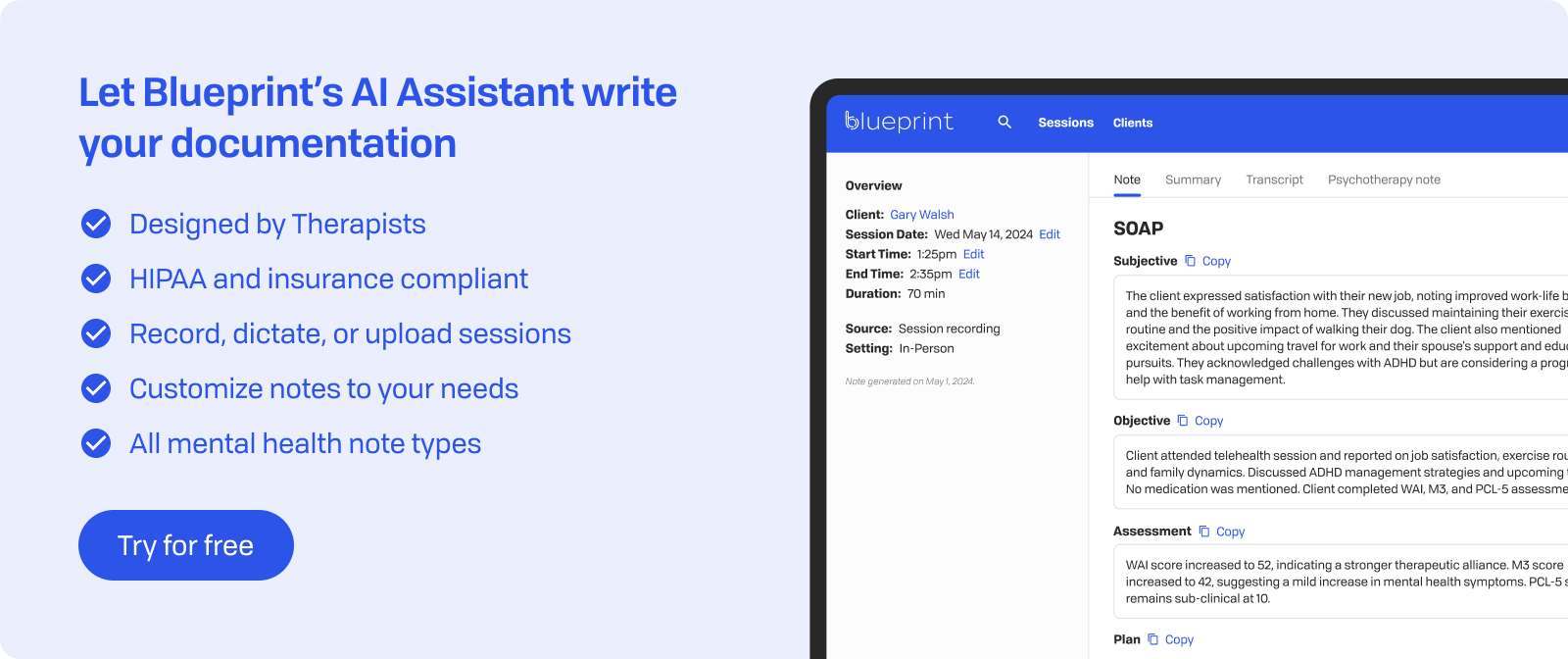In Brief
Clinical social workers make up one of the largest groups of mental health providers in the United States. They work in many settings, including hospitals, schools, private practices, and community agencies. Their combination of clinical expertise and systems-focused training sets them apart in mental health care.
Many people meet with clinical social workers without fully knowing their qualifications or scope of practice. These professionals often serve as the first point of contact for individuals seeking mental health or crisis support. They offer a unique perspective that blends individual therapy with broader social and environmental considerations.
The path to becoming a clinical social worker requires specific educational requirements, supervised experience, and licensure. Knowing about this profession benefits both aspiring social workers and those seeking mental health services. Let's explore what defines a clinical social worker and what makes their approach to mental health care unique.
What Is a Clinical Social Worker
A clinical social worker is a mental health professional with a master's degree in social work (MSW). An LCSW (Licensed Clinical Social Worker) is a social worker who, after earning their MSW, has completed additional supervised clinical hours and passed a state licensing exam, allowing them to independently provide psychotherapy and clinical services; They assess, diagnose, and treat mental, emotional, and behavioral issues. What sets them apart is their integration of therapeutic interventions with advocacy, client support, and resource linkage.
These professionals view mental health through a person-in-environment lens, considering how social, economic, and environmental factors impact psychological well-being. Clinical social workers don't just focus on symptoms; they examine the whole person within their life context.
Their training emphasizes both clinical skills and social justice principles. They learn evidence-based therapeutic techniques while developing expertise in connecting clients with community resources. This dual focus allows them to address immediate mental health concerns while working to remove barriers to long-term wellness.

Educational Foundations
The path to becoming a clinical social worker begins with earning a Master of Social Work (MSW) degree from a program accredited by the Council on Social Work Education (CSWE). This graduate-level education typically takes two years of full-time study, though advanced standing programs offer students with a Bachelor of Social Work (BSW) the chance to complete their MSW in about one year.
MSW programs combine rigorous academic coursework with hands-on clinical training. Core curriculum components include:
- Clinical Assessment and Diagnosis: Learning to evaluate mental health conditions using DSM-5-TR criteria and conducting comprehensive biopsychosocial assessments
- Evidence-Based Interventions: Gaining expertise in therapeutic modalities like cognitive-behavioral therapy, solution-focused therapy, and trauma-informed approaches
- Ethics and Professional Practice: Understanding social work values, ethical decision-making frameworks, and legal considerations in clinical practice
- Human Behavior and Development: Studying psychological theories, lifespan development, and how social systems affect individual functioning
- Research and Evaluation: Developing skills to assess treatment effectiveness and integrate research findings into practice
Field education plays a central role in MSW training. Students complete at least 900 hours of supervised field placement, with many programs requiring up to 1,200 hours. These internships occur in various settings—community mental health centers, hospitals, schools, or private practices—where students apply classroom knowledge under experienced clinical supervision.
The combination of theoretical knowledge and practical experience equips graduates to handle the complexities of clinical practice. Field placements often lead to job opportunities and help students identify their preferred practice areas and populations.
Supervised Clinical Experience & Licensure
After earning your MSW, gaining practical experience through supervised clinical work is the next step toward independent practice. Most states require between 2,000 to 4,000 hours of supervised clinical work, typically completed over two to three years. These hours must include direct client contact, with many jurisdictions specifying that at least half involve face-to-face therapeutic services.
Choosing the right supervisor plays a significant role in your professional development. Your supervisor must be:
- Licensed and experienced: Hold an active LCSW or related license, depending on the state, with at least two years of post-licensure clinical experience (some states require three years)
- Properly trained: Have completed formal supervision training through graduate coursework or continuing education programs
- Free from conflicts of interest: Cannot be a family member or have dual relationships that could compromise objectivity
You can find qualified supervisors using several methods:
- Your workplace: Many agencies and healthcare facilities have approved supervisors on staff
- Professional networks: State NASW chapters often maintain supervisor directories
- Online directories: Platforms online list clinicians who offer supervision
- Clinical supervision registries: Some states maintain official lists of approved supervisors
During supervision, you'll receive regular oversight of your clinical work, case consultation, and professional development guidance. Most states require weekly individual or group supervision sessions, with specific ratios of supervision hours to clinical practice hours.
After completing your supervised hours and fulfilling all state requirements, you can take the clinical licensing examination. The ASWB Clinical Level Exam tests your knowledge of assessment, diagnosis, treatment planning, and clinical interventions. Passing this exam grants you full licensure as an independent clinical social worker.

Scope of Practice & Settings
Clinical social workers have a broad scope of practice that includes conducting psychotherapy, performing clinical assessments, and diagnosing mental health conditions using the DSM-5-TR or ICD-11. They train to provide evidence-based treatments through individual, group, and family therapy approaches. Unlike some mental health professionals, clinical social workers are trained to conduct direct therapeutic services and broader systems interventions.
Clinical social work training allows practice in a wide range of settings:
- Healthcare facilities: Hospitals, emergency departments, oncology units, cardiac care centers, and specialized medical clinics
- Community-based services: Mental health centers, substance abuse treatment programs, and primary care clinics
- Educational environments: Elementary and secondary schools, colleges, and special education programs
- Crisis and residential settings: Hospice care, palliative services, and home health agencies
- Justice and social service systems: Correctional facilities, child welfare agencies, and family courts
- Workplace and private settings: Employee assistance programs, private practice, and corporate wellness initiatives
What sets clinical social workers apart in these settings is their understanding of the connection between individual healing and environmental stressors and change. They are trained to not only provide therapy but also coordinate care across multiple providers, advocate for needed resources, and tackle systemic barriers impacting their clients' well-being. This might involve connecting a client with housing assistance while treating their depression or working with a school system to create trauma-informed policies while providing individual counseling to students.
Their person-in-environment perspective makes clinical social workers particularly effective in settings that require both clinical expertise and the ability to navigate complex systems.

Continuing Education & License Maintenance
Keeping your clinical social work license active requires regular professional development through continuing education units (CEUs). Most states mandate between 20-40 hours of continuing education every two years, though requirements differ significantly across jurisdictions. These hours ensure you stay informed about best practices, ethical standards, and new treatment methods.
State licensing boards usually require CEUs in specific categories:
- Ethics courses: Typically 3-6 hours covering professional boundaries, confidentiality, and ethical decision-making in digital practice
- Cultural competency: Training in diversity, equity, and inclusion to effectively serve diverse populations
- Clinical skills: Updates on evidence-based treatments, new diagnostic criteria, and therapeutic advancements
- Supervision training: Necessary for those supervising licensure candidates
Popular continuing education topics for clinical social workers include trauma-informed care, telehealth best practices, and using technology tools in clinical practice. Many professionals also pursue specialized certifications in areas like addiction counseling, child welfare, or geriatric mental health.
You can earn CEUs through various formats:
- Live webinars and virtual workshops: Interactive sessions with instructors and peers
- Self-paced online courses: Flexible learning tailored to your schedule
- Professional conferences: Intensive learning paired with networking opportunities
- Peer consultation groups: Some states allow structured peer supervision for CE credit
Keep track of your CE hours and maintain documentation. Most states require proof of completion for license renewal. Professional organizations like NASW offer CE tracking tools and ensure courses meet ASWB Approved Continuing Education standards. Planning your continuing education strategically helps you grow professionally while meeting regulatory requirements.

Impact and Roles in Mental Health
Clinical social workers bring about meaningful change in mental health care through their unique combination of direct therapeutic services and systems-level interventions. Their person-in-environment approach enables them to address not just symptoms, but the underlying social factors that influence mental well-being.
Their impact reaches various aspects of mental health care:
- Holistic Treatment Approach: Clinical social workers evaluate how issues like housing instability, unemployment, and discrimination affect their clients' mental health. They integrate this understanding into treatment plans that address both psychological symptoms and environmental stressors.
- Resource Navigation and Connection: These professionals maintain extensive knowledge of community resources, helping clients access food assistance, housing programs, medical care, and educational opportunities. This coordination ensures clients receive comprehensive support beyond the therapy room.
- Advocacy for Systemic Change: Clinical social workers use their frontline experience to inform policymakers about gaps in mental health services. They advocate for increased funding for community programs, improved access to care, and policies that address social inequities affecting mental health.
- Vulnerable Population Support: Working with marginalized communities, clinical social workers provide culturally responsive care while challenging systems that perpetuate mental health disparities. They serve as both therapists and advocates for clients facing multiple barriers to wellness.
- Community-Level Interventions: Through education initiatives, support group facilitation, and collaboration with community organizations, clinical social workers help reduce mental health stigma and build stronger support networks.
This multifaceted role makes clinical social workers vital contributors to comprehensive mental health care, bridging the gap between individual healing and social justice.
Key Takeaways
Clinical social workers represent a unique combination of mental health clinician and social advocate. Their MSW education and supervised clinical training prepare them to diagnose mental health conditions, provide evidence-based therapy, and address environmental factors that affect psychological well-being. This dual focus sets them apart from other mental health professionals.
Becoming a clinical social worker involves a structured progression:
- Graduate education: Earning an MSW from an accredited program with extensive field placement hours
- Supervised experience: Completing 2,000-4,000 hours of clinical work under qualified supervision
- Licensure examination: Passing the ASWB Clinical Level Exam to practice independently
- Ongoing development: Maintaining licensure through 20-40 hours of continuing education every two years
Important skills for effective clinical social work include:
- Clinical expertise: Conducting assessments, making diagnoses, and implementing evidence-based treatments
- Systems thinking: Understanding how social, economic, and cultural factors influence mental health
- Resource coordination: Connecting clients with community services and navigating complex systems
- Advocacy abilities: Working to remove barriers and promote equitable access to mental health care
- Cultural competence: Providing responsive care to diverse populations and communities
Clinical social workers practice in hospitals, schools, community agencies, and private settings. They serve individuals across the lifespan, from children in school settings to older adults in healthcare facilities. Their versatility allows them to address immediate mental health needs while working toward systemic changes that support long-term wellness. This combination of direct service and broader impact makes clinical social workers vital contributors to comprehensive mental health care.











